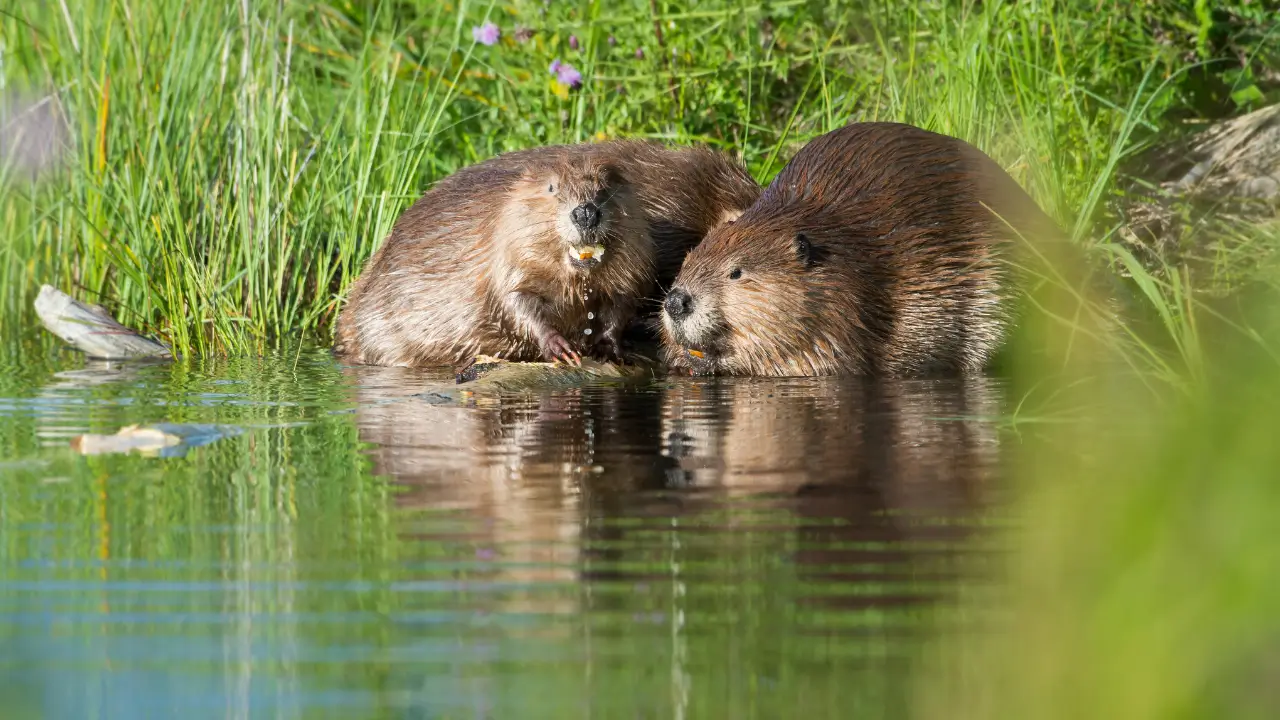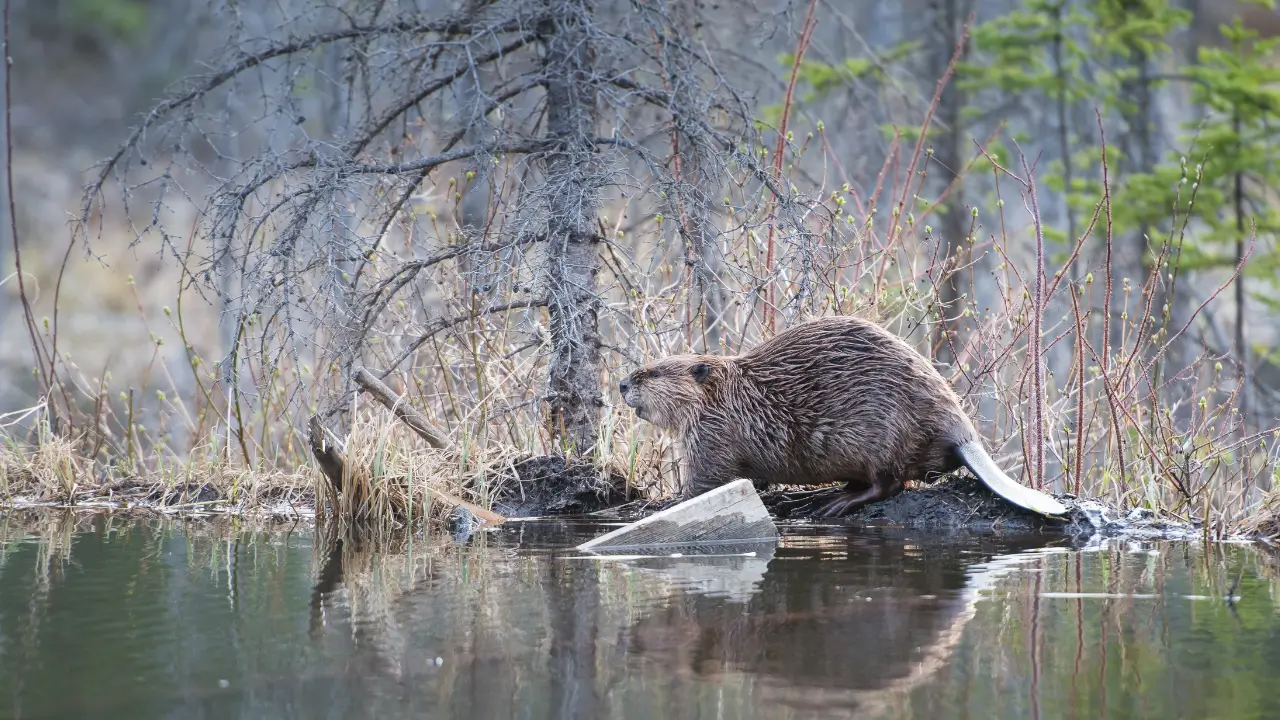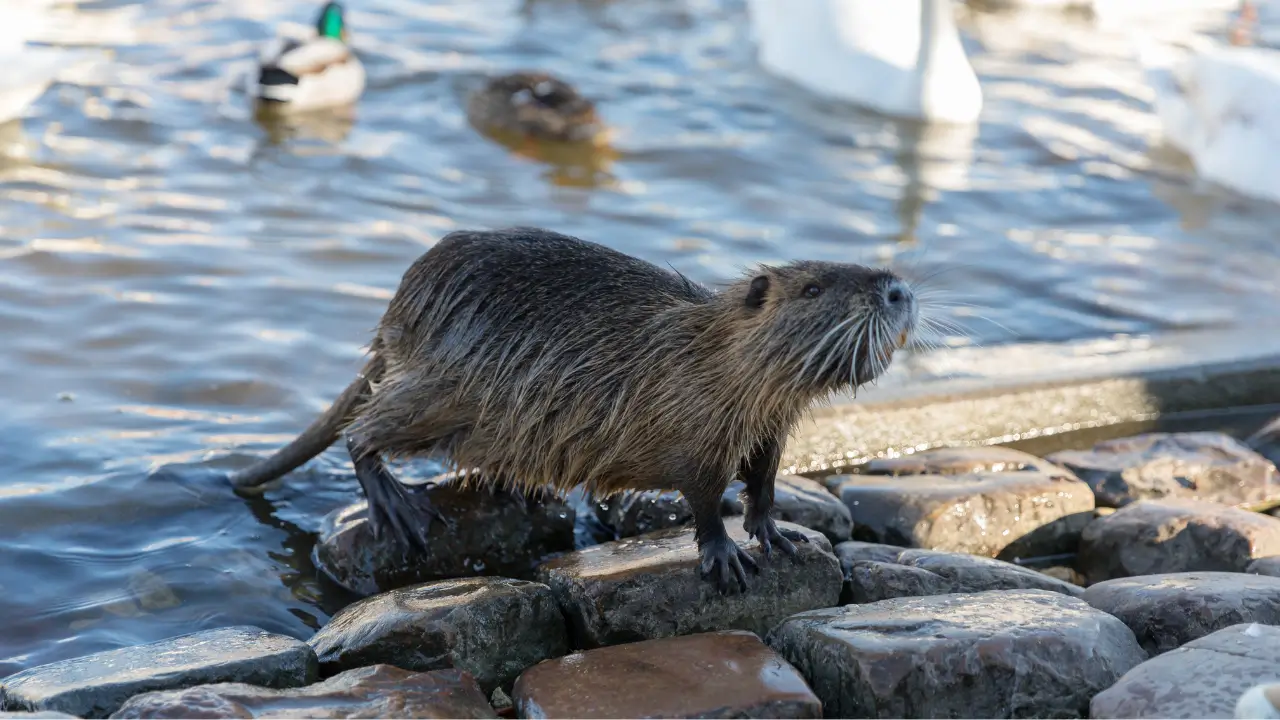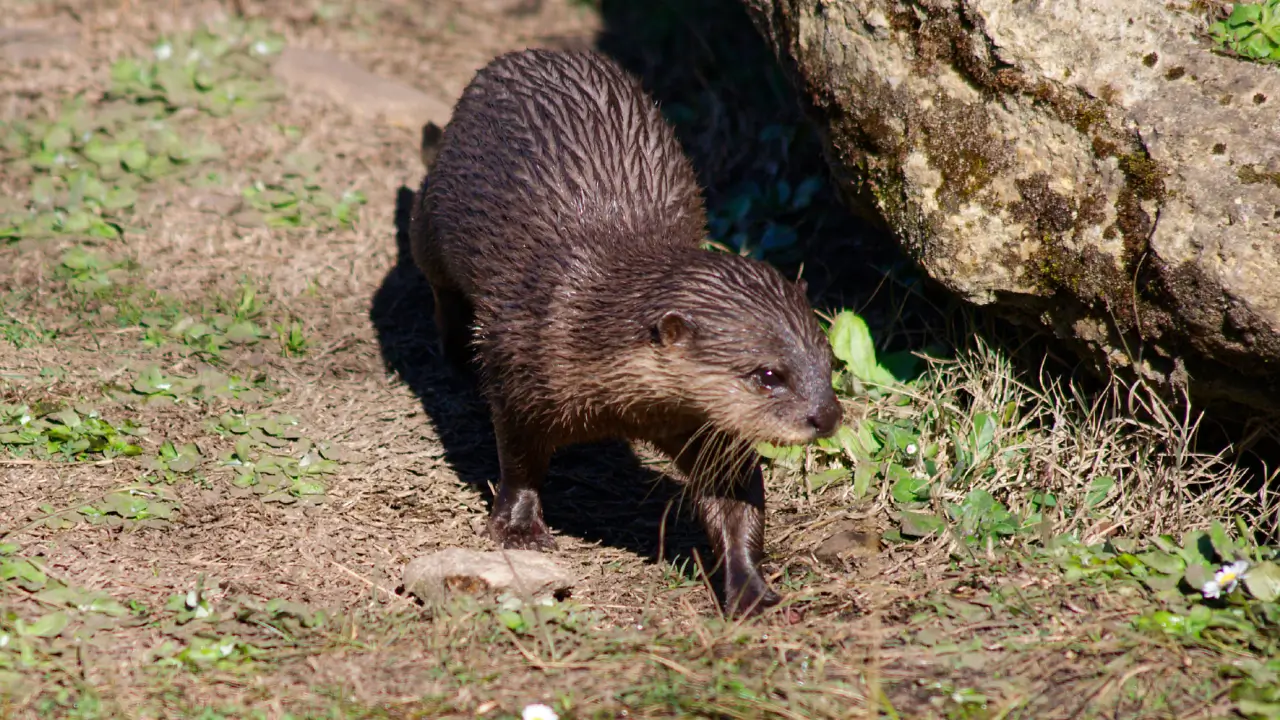This is the second-largest mammal in the category of rodents across the globe. They are herbivorous mammals living near the semi-aquatic environment because their home is more in water than land. They possess amphibian characteristics including webbed hands, feet, nostrils that close in response to water, and a tail that can help the way forward.
They are the National Animal of Canada and the largest rodents in the Canadian territory. They are known to build their environments and known to change the ecosystem on their own.
Physical Characteristics
They possess specific physical characteristics that equip them to live in the aqueous as well as land environment. Following is a list of some physical features of these mammals:
| Features | Relevant Information |
| Scientific Name | Castor canadensis |
| Life Span | Average is 10-12 years but they can live up to 19 years |
| Diet | Tree Barks, Sedges, Grasses, and different Aquatic Plants |
| Height | Average length can be 79-90 centimeters while tail is about 20-35 centimeters |
| Average Weight | It lies in between 11-32 kg |
| Habitat | Rivers, Creeks, Lakes and Dams |
| Role in Ecosystem | Contribute to ecosystem maintenance and help in biodiversity conservation |
| Status of specie | Not Endangered |
Here we will be unbreaking some of the fascinating facts about the national animal of Canada that will raise your curiosity to see it;
-
Canada’s National Symbol
The beaver is an official emblem of Canada and has been a symbol of the country since the early colonial era. It is featured on the Canadian Nickel and was prominently displayed on the coat of arms of the Hudson’s Bay Company.
-
Dam Building
Beavers are well-known for their dam-building abilities, constructing complex structures from logs, sticks, and mud to create ponds.
-
Ecosystem Engineers
Beavers are considered “ecosystem engineers” because their dams create wetland habitats that benefit numerous other species.
-
Keystone species for Biodiversity
Their ponds provide shelter, food, and breeding grounds for fish, amphibians, waterfowl, and other wildlife.
-
Family Structure
Beavers live in family groups called colonies, with a mated pair and their offspring. Their male partner mates only once and then leave the place,
-
Economic Value
The beaver fur trade was a driving force behind the exploration and settlement of much of Canada.
-
Contributions to Tourism
Beavers possess economic value through their contributions to eco-tourism and their role in maintaining healthy wetland ecosystems.
-
Delicious Meet
Meat of the beaver is considered super tasty because of its reddish appearance and delicious taste. It is also hunted for enjoying this meat.
Sub-Species of Beaver in Canada

Two subspecies of this rodent are found in Canada, but they are native to this country;
- North American Beaver
- Eurasian Beaver
Both of these species differ in their skull, tail shape, and the color of fur.
Being the country’s national animal, the Beavers are found throughout the Canadian provinces. They are frequently distributed in the country and can be seen in different places.
Places to See the Beaver In Canada
People fond of capturing images of beavers or seeing it with eyes can visit these famous places in Canada where these animals are frequently found.
| Direction of the Country | Places Where Beavers are Found |
| Western Side | Alberta, Vancouver Island, Okanagan Valley |
| Eastern Side | Labrador Sea, Newfoundland, Prince Edward Island, Quebec |
| Northern Territory | Nunavut, Yellowknife |
| Southern Territory | Toronto, Victoria |
Some national parks are also the habitat for the beavers and provide a good sight for the photography of this unique rodent:
- Gros Morne National Park
- Cape Breton Highlands National Park
- Banff National Park
- Nahanni National Park Reserve
- Aulavik National Park
Ideal Time and Season to See Beavers in Canada
The following seasons are ideal for capturing the beavers with your eyes because they roam around in these seasons;
| Season | Months for Sightseeing |
| Spring | March to May |
| Summer and Late Summer | June to August |
| Fall | September to November |
The best times to observe beavers are usually early morning or evening when they are most active.
FAQs
Can you hunt beavers in Canada?
Beavers can be legally hunted during designated open seasons in Canadian provinces/territories with a valid hunting license. Specific regulations exist around hunting methods, reporting requirements, and bag limits. You can also consult your local wildlife authorities for up-to-date beaver hunting rules and guidelines in your area.








